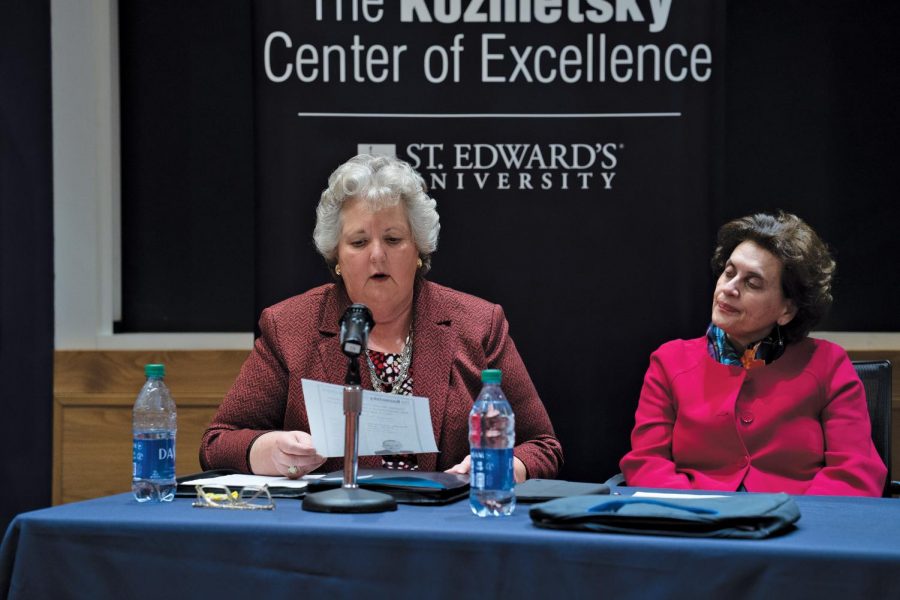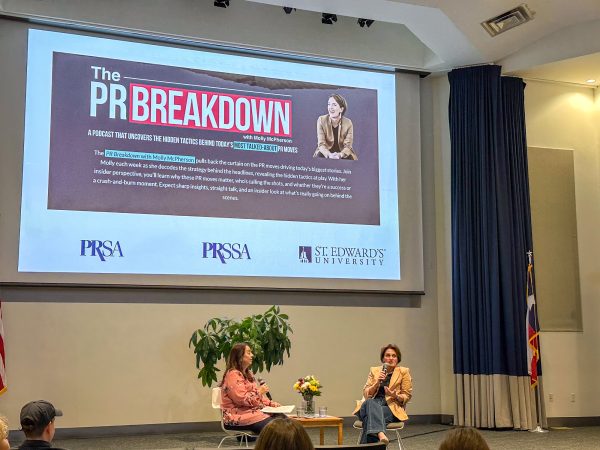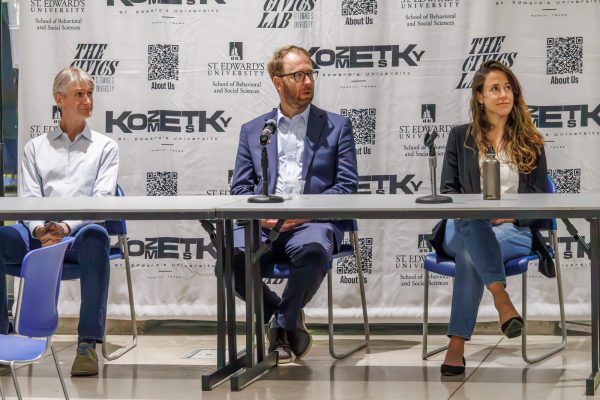Importance of communication, religious literacy in global affairs stressed at Kozmetsky panel
The Kozmetsky Center of Excellence featured speakers including Despina Afentouli of NATO and Father Louis Brusatti, Professor Emeritus of Religious Studies at St. Edward’s. The panel discussion is one of many coordinated by the Kozmetsky Center throughout the semester.
The Kozmetsky Center of Excellence held a discussion in Carter Auditorium on Feb. 5 concerning religion and global issues. The event’s main discussion centered around strengthening networks in order to address important security challenges.
Panelists speaking in the discussion included religious leaders and professors as well as a NATO public diplomacy staff member. The panelist gave their thoughts on the subject of global security/policy, religious communities and how both can help in today’s security.
Despina Afentouli, Program Officer for Partnership for NATO, talked about the work that international organizations do.
“The international environment was built after World War II and is built on the consequences and lessons learned from the war.” Afentouli said. “You have a pyramid with the United Nations at the summit representing all the countries of the world, and then you have regional organizations representing the status quo of the western world.”
Father Louis Brusatti, Professor Emeritus of Religious Studies at St. Edward’s, shared his thoughts on the matter from a religious perspective.
“Our relationship to God is never separated from those who are baptized in Christ, we are individuals in communion…we have a common communion of fellowship with all people.” Brusatti also included a passage from a speech by Pope Francis how people must still stand together even when “enemies of dialogue ” try to stop the dialogue.
Professors on the panel also gave their insights on the topic. Elizabeth Prodoromou, Professor of Conflict Resolution, shared with the audience about some of the findings from a project she had recently completed.
“One of the most important contributions is we’ve developed our building religious literacy for security communities.” Pordoromou said. “Basic foundational laws, test and religious beliefs and expressions of faith communities that are interwoven either actively or implicitly into security conversations. Building religious literacy as a security policy maker or practitioner.”
Some of the members of the audience shared some of their thoughts about the panel. Nancy Salisbury, a professor of communication at St. Edward’s, said that there was a lot to take in and contemplate.
“I heard the phrase “enemies of dialogue” and it really resonated with me from a communication viewpoint,” Salisbury said. “The panel stressed the importance of using faith-based dialogue to help develop a mutual understanding in managing society’s human security issues, while addressing the challenges of misinformation and disinformation.”









